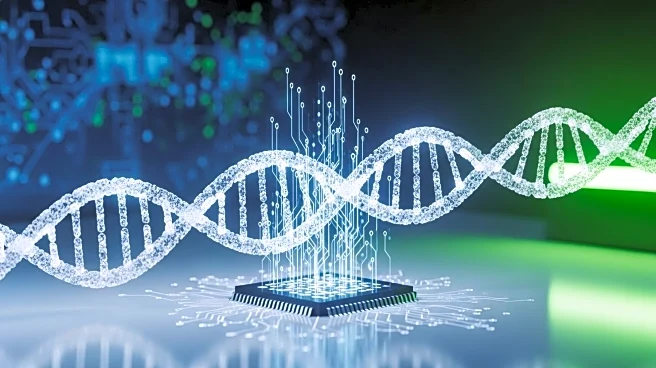What is the story about?
What's Happening?
The global market for ovine and caprine artificial insemination is projected to grow significantly, reaching USD 2.31 billion by 2034. This growth is driven by the increasing demand for genetic improvement in sheep and goats, supported by advanced breeding techniques. Artificial intelligence (AI) plays a crucial role in this market by improving genetic selection and managing reproduction through technologies like machine learning and data analytics. AI algorithms analyze data from sensors and animals to identify high-performing traits, facilitating precise genetic selection and improvement. This accelerates genetic progress and enhances productivity in livestock farming.
Why It's Important?
The integration of AI in livestock breeding is transforming the agricultural sector by enhancing productivity and disease resistance in sheep and goats. This technological advancement allows farmers to improve herd genetics, leading to better production of meat, milk, and fiber. AI-driven genetic selection reduces breeding costs and increases efficiency, making farming systems more resilient to disruptions such as labor shortages and climate variability. The widespread adoption of AI in livestock management is expected to drive significant economic growth in the agricultural industry, benefiting farmers and consumers alike.
What's Next?
The market is expected to continue growing, with Europe dominating due to its advanced breeding programs and infrastructure. Asia Pacific is anticipated to be the fastest-growing region, driven by large populations and increasing demand for meat and dairy products. The adoption of AI and advanced breeding techniques will likely expand, offering more opportunities for genetic improvement and sustainable livestock farming. As AI technology evolves, it may further enhance breeding efficiency and productivity, supporting the global demand for high-quality animal products.















